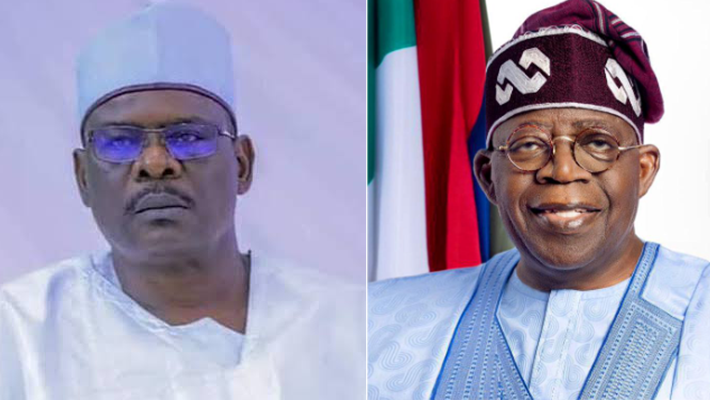753
By Myke Agunwa
As different political groups continue to endorse President Bola Tinubu for a second term, Senator Ali Ndume (APC, Borno South) has cautioned that cautioned that such endorsements do not guarantee electoral success.
Speaking with journalists in Abuja at an event monitored by pointblanknews.com, the lawmaker who has been in the National Assembly since 2003, recalled how former President Goodluck Jonathan, who in 2015 was endorsed by 22 governors of the Peoples Democratic Party (PDP), lost his re-election bid to Muhammadu Buhari of the All Progressives Congress (APC).
Ndume said he does not support the endorsement of Tinubu’s relection despite the open declaration by members of the National Assembly, citing the country’s dire economic conditions, rising cost of living and growing insecurity.
He said that Nigerians cannot see any hope in the Renewed Hope Agenda of the President.
“Nigerians cannot see any hope, they are doubting the Renewed Hope,” he said.
Ndume revealed that he walked out of the Presidential Villa’s Banquet Hall when the endorsement was announced.
He said, “I was there but that was not why I was there; I was there for a summit and when I realised that it was not a summit and voice vote was put about the endorsement of the president, I just left, and that does not mean I am not an APC member. The majority had its way but few of us felt that was not right.
“It happened before, not once, not twice. It happened during Jonathan. That does not mean anything. Politicians are decamping, but the people who are the voters are not decamping.
“I hope that he would look back historically and see that the gathering of people to endorse you does not mean anything.
“Jonathan had 22 governors then endorsing him like was done now. And what happened? Jonathan lost woefully. A lot of money was spent. Even the election was shifted but we are not learning our lessons. I pity Mr President.”
The political space has witnessed a surge of political defections, particularly from the opposition to the ruling APC. Over 300 legislators, governors, and party leaders switched allegiance, driven by promises of federal patronage and access to power.
This defection wave bolstered the APC’s dominance, weakening opposition parties like the PDP and Labour Party in critical regions and fracturing their internal structures. As a result, the APC gained a strategic advantage, consolidating control over legislative and party machinery and enhancing Tinubu’s presidential campaign.
These defections have sparked concerns about undermining democratic processes and ideological consistency, creating an environment of opportunistic politics rather than issue-based competition. The influx of defectors and their new alliances reshaped Nigeria’s political balance, contributing significantly to Tinubu’s victory while further entrenching a one-party dominance that could challenge future democratic resilience.z



